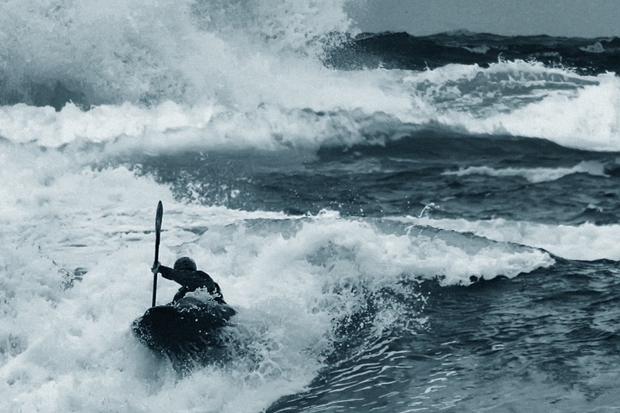If there’s one shared characteristic of the so-called ‘new nature writing’ it is a failure, with a few notable exceptions, even to approach what up until very recently writing about the non-human had as its core ambition; that is, to dissolve the ego, to melt the self in the recognition of the other and, through that and in a wonderful paradox, to stretch the knowledge of what it is to be human. The solipsistic trait of the age is, it seems, pandemic; try consciously and ostentatiously to be a beast and you’ll succeed only in being a beast of a human being. Emblematic of this is a kind of empathetic glee in the suffering of animals, as if the evolutionary botch of Homo sapiens could ever be as pure and as perfect in its predations as, say, an otter or a sparrowhawk. Much grubbiness is the result, when what you are is overlooked in favour of who you are.
If you read appreciations of the work of Cynan Jones you will find the same words recur — ‘spare’, ‘essential’,‘distilled’. They are apposite epithets for his latest novel, Cove, in which man is at his most bare and forked, adrift and alone in a kayak, blasted by lightning out of his constructed personality into a state of rebirth, naked and unadorned. The process of the ensuing ego-rebuild, desperate and tentative, is painful, moving, energising and intensely thrilling to witness.
Immensities happen in this slim book.The unnamed protagonist has with him a flask of his father’s ashes, evidently intending to scatter them at sea. When he awakes from the stun of the lightning strike, he is dressed in these dusty relics, in a mighty symbol that would take several pages to unpack. In the re-forming ooze of his mind is an idea of a pregnant woman, the ‘bell of her stomach’ a memory which repeatedly calls to him; how we reach for the pealing buoys as we build ourselves in the world. The novel sways between binaries; her full belly, his empty; the second and third person singular as awareness gathers again; air and water — in a rocking, seesawing rhythm of swell and collapse. You need to find your sea-legs to read this book.
And indeed it is a queasy business, the naming and ordering of the world around the developing, yearning self. There is a butterfly (here a psychopomp, and when are they ever anything else in literature?); a sunfish; a pod of dolphins; the feather of a wren which, in another dizzyingly multi-layered metaphor, has crippled the mobile phone; and a ‘flock of jellyfish like negligées’. The drifting man, like Crusoe, is forced back into inventive utility, compelled to draw on his great and innate resourcefulness, so that a frying pan becomes an oar and a cagoule a sail. ‘A wondrous sense of what has happened to him’ arises from watching the play of bioluminescence around the splashings in the sea of his piss. He is besieged by eerie images of submerged cities over which the tiny speck of himself drifts or flies; he ‘throws science’ at these fears, but of course the fears remain, because without modern technology we are creatures like any other that cower at the inexplicable. (And marvels, too, as illustrated by the startling coincidence revealed in the Author’s Note.)
Those sunken civilisations recall H.P. Lovecraft — and the very premise of Cove offers up Hemingway. The conspicuousness of influence is a flaw, as is Jones’s propensity for the gnomic. But the influences coalesce, as they should, into a thing of uniqueness and value, and this extraordinary book’s main echo is of J.C. Chandor’s film, All Is Lost, even down to the beautiful, poignant ambiguity of the ending. This is what it is, to go from man to beast and, ultimately, back again — wildly rewarding and utterly exhilarating.






Comments